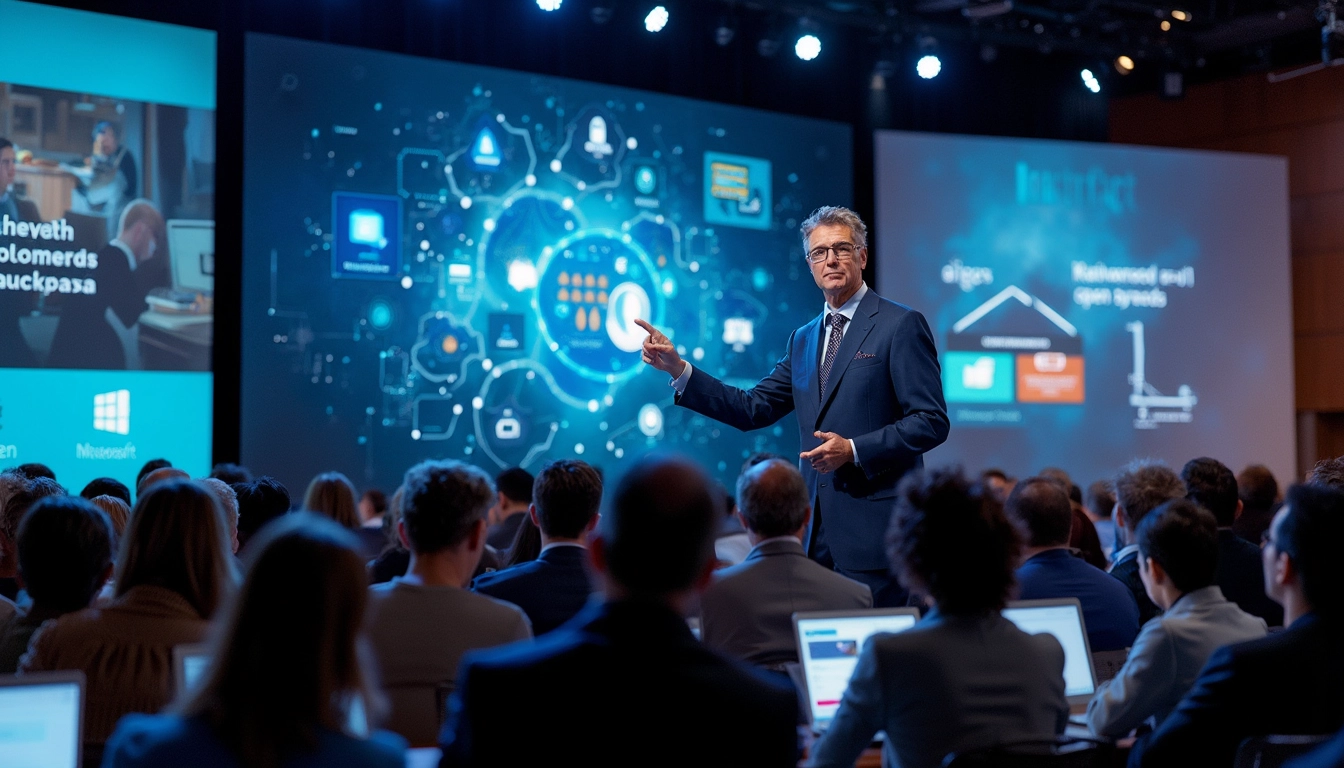
Microsoft Unveils Vision for Interconnected AI Agents Ecosystem Collaboration
Microsoft’s ambitious vision for the future of artificial intelligence focuses on creating interconnected AI agents that can collaborate and retain information seamlessly. The tech giant’s announcement at the Build conference signals a significant shift in AI development, emphasizing open standards and interoperability to build an ecosystem where AI agents can work together efficiently and maintain memory of their interactions.
Table of Contents
Key Takeaways:
-
• 2.1 million users actively engage with Microsoft Business Applications Copilots monthly
• Open standards approach aims to enable seamless collaboration between different AI agents
• Focus on data-readiness and compelling use cases to drive widespread adoption
• Implementation of AI agents is transforming manufacturing efficiency and productivity
• Development of standardized protocols for AI agent communication and data sharing
The Evolution of AI Agent Collaboration
Microsoft’s initiative to unify AI agents represents a significant leap forward in artificial intelligence technology. By establishing open standards for agent communication, Microsoft is laying the groundwork for a more integrated and efficient AI ecosystem. This approach aligns with the growing need for advanced AI reasoning capabilities in modern computing environments.
Transforming Business Operations
The integration of collaborative AI agents is already showing promising results in various industries. Manufacturing sectors have seen remarkable improvements in efficiency through the implementation of digital threads and AI agents. The ability to automate complex tasks and maintain information continuity has revolutionized how businesses operate.

Implementation and Adoption Strategies
Success in implementing AI agent collaboration relies heavily on three key factors: data preparedness, compelling use cases, and executive support. Organizations looking to leverage these technologies can benefit from automation platforms that streamline the integration process and enhance operational efficiency.
Advancing AI Reasoning Capabilities
The development of collaborative AI agents builds upon recent breakthroughs in AI reasoning. Similar to Google’s developments in human-like reasoning, Microsoft’s approach focuses on creating more sophisticated and capable AI systems that can work together effectively.
Technical Infrastructure and Processing Power
The success of collaborative AI agents depends significantly on robust technical infrastructure. Recent advances in computing technology, including innovative processing solutions, provide the necessary foundation for these sophisticated AI systems to operate efficiently.
Future Implications and Industry Impact
The development of collaborative AI agents marks a pivotal moment in technological advancement. As these systems become more sophisticated, we can expect to see:
-
• Enhanced decision-making capabilities through combined AI intelligence
• Improved data analysis and pattern recognition
• More efficient automation of complex tasks
• Better integration between different AI platforms
• Increased productivity across various industries


